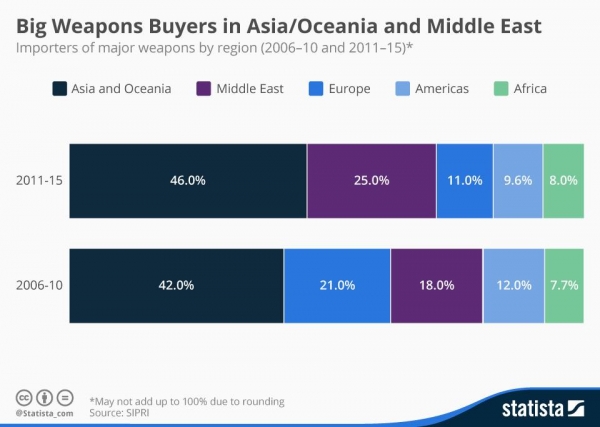Imposed on us a confrontation with the United States forcing Russia to pay more attention to initiatives of a geopolitical rival. The intention of the Pentagon to place in Turkey rocket system HIMARS has caused negative reaction of Russian parliamentarians. In response they offered to put our missiles in Cuba, and to restore the operation of the electronic intelligence center in Lourdes.

Appropriate treatment deputies from the Communist party Valery Rashkin and Sergey Obukhov published on the party website. Addressees are indicated President Vladimir Putin, foreign Minister Sergei Lavrov and defense Minister Sergei Shoigu. The proposal of parliamentarians resembles like about the Caribbean crisis of 1962 when the world teetered on the brink of nuclear war, and ill-considered voluntary leaving of Russia from Cuba in the early 2000s.
About US plans to deploy in Turkey rocket system HIMARS told the Prime Minister mevlüt çavuşoğlu. It will happen in may. According to him, the American missile systems of volley fire (MLRS) necessary to protect against the frequent attacks of the militants of Daesh on Turkish territory. April 27, General Peter Gersten confirmed the plans of the Pentagon. According to him, we are talking about two systems. One will be used to support the activities of the us military and its allies in Turkey, one in Iraq. HIMARS is a highly mobile rocket artillery system on wheeled chassis and is a lightweight MLRS. The performance characteristics of the system allow you to use missiles with a range to 500 km.
It is on the latter fact drew the attention of parliamentarians. This range poses a potential threat to the ally of Russia in the CSTO — Armenia, within the framework of the relevant Treaty Moscow has obligations to ensure its security. This becomes especially important against the background of aggravation of the conflict in Nagorno-Karabakh. Historically gravitating towards each other since Azerbaijan and Turkey appear here as potential opponents other pair of allies — Armenia and Russia. Strengthening the opposite side can not but cause concern in Yerevan and in Moscow. As an adequate response, the parliamentarians propose to place “the Russian launchers similar or even greater radius of action in Cuba”. In a further step, they see a resumption of the warfare center in Lourdes, calling the initiative an “asymmetric response”.
According to representatives of the Communist party, both options are feasible in the framework of the Treaty on friendship and cooperation between the USSR and Cuba. Obviously, Russia is considered here as the legal successor of the Union in terms of international agreements. In addition, today’s Russia sees the MPs as a Challenger to the foreign policy role in the world, played by once the Soviet Union. “Russia is once again positioning itself on the international stage as a great power, our country should do more to rebuild the shattered military and economic ties with our allies, to which primarily belongs the fraternal Republic of Cuba,” write the authors. After the operation in Syria and renewed Russia on other international issues it’s hard to argue.
Cuban missile crisis 2.0?
Arguing their point of view, the representatives of the Communist party refer to the experience of the Cuban missile crisis, when in response to the deployment in Turkey of medium-range missiles, the Soviet leadership decided to respond in a similar way in Cuba. Indeed, American missiles with nuclear warheads and a flight time to Moscow for about 10 minutes then carried a direct threat to the country — the capital and main industrial areas. A retaliatory move, using Cuba as an “unsinkable aircraft carrier” allowed “to cover”, both Washington and most of the military bases of strategic aviation, concentrated on the East coast of the United States. In addition, under the blow was a NASA spaceport in Florida and, as a consequence, the entire American space program. The idea was Nikita Khrushchev. Fidel Castro reflected on his proposal during the day and, after consulting with comrades in the struggle — brother Raul and Che Guevara, gave the nod.
It should be noted that in the early 1960s, nuclear parity was not in sight. The US advantage over the USSR was huge. They had about 6 thousand against 300 Soviet warheads and overwhelming superiority in the means of delivery. Missiles for the transfer to Cuba was removed from combat duty positions in Ukraine. Despite the introduction of the American embargo, the Soviet military was able to secretly deliver most of the lethal cargo to the island, to mount the launcher and deploy a military group. American spy plane U-2 was recorded by the Soviet fist directly on the States under his nose. Temporary nuclear parity was achieved. During the ensuing negotiations, the Soviet Union “exchanged” the withdrawal of its missiles from Cuba for a similar withdrawal of us weapons from Turkey. World peace was saved.
In this regard, the proposal of the Communist party seems far from self-evident. Supplied by the Americans MLRS is still not nuclear missiles, and despite a potential danger for Armenia, strategic does not represent a threat. Neither the characteristics nor the quantity supplied of the systems have not yet reason to panic and provoking retaliatory actions. Russia is now embroiled in multiple conflicts simultaneously, and lay another front line completely useless. The only reasonable form of answer could be the supply of similar systems, the same Armenia. It will soothe Yerevan and Ankara will remind you of restraint. Better yet, use our MLRS during a ground operation in Syria against DAISH. Together with the Americans. Why not?
The eyes and ears of Russia in the West
More noteworthy is the “appendage” to the proposal of the Communists — on the restoration of the electronic intelligence center in the southern suburbs of Havana Lourdes. Its construction was to some extent a consequence of the Cuban missile crisis began immediately after his graduation, in 1962. During the whole period of operation the center is constantly modernized. It is possible to intercept data from U.S. satellites, telecommunication cables, information from the mission control center of NASA, listen to phone conversations, etc. This activity has always raised objections from the United States. As a result, in the period of the loss of our country’s political identity phrase on the intelligence center in Lourdes as the excess began to sound more often. The need to pay for the content from 90 to 200 million dollars a year was being touted as a waste. In 2002, the center was eliminated.
Over time, the understanding of the need for such a centre has come once again, including due to the fact that the United States was not in a hurry to seem of Russia “good” and stubbornly bent his aggressive foreign policy. In 2014 between Russia and Cuba resumed negotiations about a possible restoration of cooperation. During a visit to the island of Vladimir Putin there were even reports that the decision to open the center again has been taken. Subsequently, however, the President denied it. And now we see the proposal of the Communist party. Despite the slightly old-fashioned rhetoric, it sounds very modern and in a timely manner. The center for electronic reconnaissance — the eyes and ears of Russia in the Western hemisphere. Now, when Russia is strong, its content should not be a burden, and we the effect can be huge. The most expensive in the world — information. Silly from this advantage to give up.
Moreover, it is important not to miss any moment. Do not think that Cuba at all times will listen to Moscow, as the older brother. The recent visit to Havana of Barack Obama showed that the US is not averse to strangle the island in the arms. And then it will be too late. However, while the Cuban people are Castro brothers, Russia may have with Havana General case. You need to hurry.








